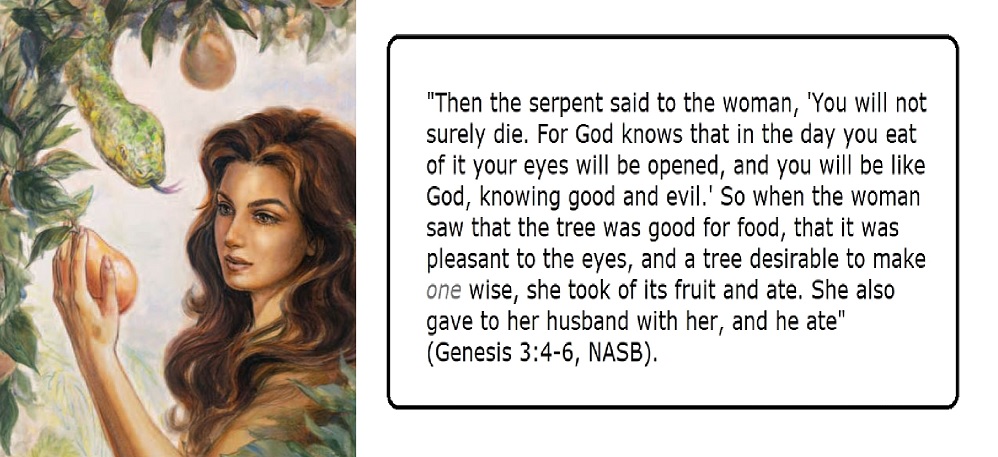“Go therefore and make disciples of all the nations…teaching them to observe all that I commanded you; and lo, I am with you always, even to the end of the age” (Matthew 28:19-20, NASB).
——————–
Contents:
1) Love Your Neighbor (Frank Himmel)
2) “Ready For Every Good Deed” (Heath Rogers)
3) Just As Christ Loved The Church (Al Diestelkamp)
4) News & Notes
——————–

-1-
Love Your Neighbor
Frank Himmel
What does it mean to love your neighbor? Jesus’ parable of the Good Samaritan (Luke 10:25-37) points to helping the needy, yet that is only the beginning. romans 13:9 says that all the commandments relating to how we treat others are summed up in the saying, “You shall love your neighbor as yourself.” Galatians 5:14 concurs.
Drawing just one entry from most of the New Testament letters, here is a sampling of what loving our neighbor requires.
► “Never pay back evil for evil to anyone. Respect what is right in the sight of all men. If possible, so far as it depends on you, be at peace with all men” (Romans 12:17-18).
► “Let no one seek his own good, but that of his neighbor. . . .just as I also please all men in all things, not seeking my own profit but the profit of the many, so that they may be saved” (1 Corinthians 10:24,33)
► “Blessed be the God and Father of our Lord Jesus Christ, the Father of mercies and God of all comfort, who comforts us in all our affliction so that we will be able to comfort those who are in any affliction with the comfort with which we ourselves are comforted by God” (2 Corinthians 1:3-4).
► “Brethren, even if anyone is caught in any trespass, you who are spiritual, restore such a one in a spirit of gentleness; each one looking to yourself, so that you too will not be tempted” (Galatians 6:1).
► “Let all bitterness and wrath and anger and clamor and slander be put away from you, along with all malice. Be kind to one another, tenderhearted, forgiving each other, just as God in Christ also has forgiven you” (Ephesians 4:31-32).
► “Do nothing from selfishness or empty conceit, but with humility of mind regard one another as more important than yourselves; do not merely look out for your own interests, but also for the interests of others” (Philippians 2:3-4).
► “Let your speech always be with grace, as though seasoned with salt, so that you will know how you should respond to each person” (Colossians 4:6).
► “. . . Make it your ambition to lead a quiet life and attend to your own business and work with your hands, just as we commanded you, so that you will behave properly toward outsiders and not be in any need” (1 Thessalonians 4:11-12).
► “But as for you, brethren, do not grow weary of doing good” (2 Thessalonians 3:13).
► “First of all, then, I urge that entreaties and prayers, petitions and thanksgivings, be made on behalf of all men, for kings and for all who are in authority, so that we may lead a tranquil and quiet life in all godliness and dignity” (1 Timothy 2:1-2).
► “The Lord’s bond-servant must not be quarrelsome, but be kind to all, able to teach, patient when wronged, with gentleness correcting those who are in opposition, if perhaps God may grant them repentance leading to the knowledge of the truth” (2 Timothy 2:24-25).
► “Remind them to be subject to rulers, to authorities, to be obedient, to be ready for every good deed, to malign no one, to be peaceable, gentle, showing every consideration for all men” (Titus 3:1-2).
► “But encourage one another day after day, as long as it is still called ‘Today,’ so that none of you will be hardened by the deceitfulness of sin” (Hebrews 3:13).
► “My brethren, do not hold your faith in our glorious Lord Jesus Christ with an attitude of personal favoritism. . . .But if you show partiality, you are committing sin and are convicted by the law as transgressors” (James 2:9).
► “Beloved, I urge you as aliens and strangers to abstain from fleshly lusts which wage war against the soul. Keep your behavior excellent among the Gentiles, so that in the thing in which they slander you as evildoers, they may because of your good deeds, as they observe them, glorify God in the day of visitation” (1 Peter 2:11-12).
► “But whoever has the world’s goods, and sees his brother in need and closes his heart against him, how does the love of God abide in him? Little children, let us not love with word or with tongue, but in deed and truth” (1 John 3:17-18).
► “And have mercy on some, who are doubting; save others, snatching them out of the fire; and on some have mercy with fear, hating even the garment polluted by the flesh” (Jude 22-23).
Doubtless you are thinking of other verses not included in this brief survey.
Luke 6:31 sums it all up well: “Treat others the same way you want them to treat you.”
— Via PathLights, August 23, 2020
——————–

-2-
“Ready For Every Good Deed”
Heath Rogers
The apostle Paul told Titus to “remind them to be subject to rulers, to authorities, to be obedient, to be ready for every good deed” (Titus 3:1). There are several reasons why you and I need to be ready for every good deed.
1. There is a shortage both of good works and of people who do them. There are plenty of people doing bad things. This world has been characterized by sin and evil since the fall of man in the Garden of Eden. There is always a need for good people who will do good deeds. If we do not perform the good works God has prepared for us to do (Eph. 2:10), who will?
2. If we aren’t ready, we won’t see the opportunities to do good works. How many times have opportunities passed us by because we weren’t prepared? Some people excuse their lack of involvement by saying, “I don’t know how,” or, “I never have the opportunity.” The opportunities exist, we just have to find them. Paul asked the Colossians to pray “for us as well, that God may open up to us a door for the word, so that we may speak forth the mystery of Christ, for which I have also been imprisoned” (Col. 4:3).
3. Readiness is a state of mind. Christians are to live in a watchful, alert state. Jesus said, “Therefore be on the alert, for you do not know which day your Lord is coming. But be sure of this, that if the head of the house had known at what time of the night the thief was coming, he would have been on the alert and would not have allowed his house to be broken into. For this reason you be ready too; for the Son of Man is coming at an hour when you do not think He will” (Matt. 24:42-44). We are to be on the alert always, not only for the Lord’s return, but also for opportunities to do good.
Are you and I ready for every good deed?
— Via Knollwood church of Christ, April 2019
——————–

-3-
Just As Christ Loved The Church
Al Diestelkamp
For men who are married, I doubt that there is any greater challenge than the one posed by the apostle Paul in his letter to the Ephesians: “Husbands, love your wives just as Christ also loved the church and gave Himself for it” (5:25). Loving our wives is easy, but loving them “just as Christ loved the church” sets a very high standard. Therefore, it is important that we see just how Christ loved the church so that we might act accordingly toward our wives.
Christ Loved the Church Sacrificially
He “gave Himself for it.” To succeed at loving our wives “as Christ does the church,” we must have an attitude of sacrificial service toward them. It’s not likely that we will have to die for our wives, but we must be willing to serve their needs. As husbands, we need to understand that our wives’ needs differ from our own. True love “does not seek its own” (1 Cor. 13:5). It is our responsibility to meet the needs of our wives. A great “fringe benefit” of doing this well is that our wives will respond in kind by making sure that our needs are met. While not all wives have identical needs, a survey of Christians attending a ladies’ Bible class showed that their number one need is for their husbands to provide spiritual leadership. Other expressed needs (in order of their importance) were family commitment, communication, affection, and financial security.
Christ Loved the Church Exclusively
The apostle says that Christ’s gift of Himself was “that He might sanctify and cleanse it” (v. 26). Though Jesus loves the whole world, He has “set apart” His church from the world. He has only one bride. The marriage relationship requires sanctification—a setting apart from other relationships. In marriage, the husband is “set apart” to belong to the wife, and the wife is “set apart’ to belong to the husband—he for her; her for him. Any interference with this God-given arrangement is sin.
Christ Loved the Church Caringly
“So husbands ought to love their own wives as their own bodies; he who loves his wife loves himself. For no one ever hated his own flesh, but nourishes and cherishes it, just as the Lord does the church” (vs. 28-29). The word nourish means “to feed,” and the word cherish means “to soften by heat” [Vine]. I think we know what we do for someone or something we cherish—“protect and care for lovingly; hold something dear” [American Dictionary].
Christ Loved the Church Enduringly
As the church is joined to Christ, so “a man shall leave his father and mother and be joined to his wife, and the two shall become one flesh” (v. 31). This is a reference to the intimate sexual relationship between a husband and wife. However, Jesus used this same quote to teach the inseparability of marriage (Matt. 19:5-6). As Christ and His bride are “one body” which nothing can separate (Rom. 8:35-39), so the husband and wife are “one flesh” which man must not separate.
From the beginning, God said, “it is not good that man should be alone; I will make him a helper comparable to him” (Gen. 2:18). As men, we should have a great appreciation for our wives. We should view them as highly-prized (and nicely packaged) gifts from our Creator. He knows just what we need to help us go to Heaven.
— Via Think On These Things, April-May-June 2019
——————–
-4-
News & Notes
Folks to be praying for:
We extend our condolences to all the family and friends of John Henry Cole (of Vernon, Alabama, and the biological father of Tina Allen).
Alan and Darlene Tanner have both tested positive for covid-19.
Michael Rittenhouse, who had covid-19, is now doing 100% better! He will be going back to work Monday. “Little Michael,” who tested negative, will be going back to school Monday; and his mother Rebecca (who has recovered from covid-19) will also be going back to work Monday.
Taylor Wright and his pregnant wife Sarah have also both recovered from covid-19, and their unborn baby is doing fine as well.
Susanne Rittenhouse, who tested positive for covid-19 on Monday, is at home getting better.
Shirley Crews is still on life support at the hospital. They have put her in an induced coma and also began doing fusions for her covid-19.
Martha Lively mentioned that she had a couple bad days last week with her sciatica — but for the most part, she is doing better. Her chiropractor, whom she will see again this Tuesday, has been helping.
Judy Daugherty’s broken shoulder turned out to be worst than what was first thought. So surgery was performed on it Thursday, which went well. She will be moved to a rehab facility today, where she will be for 6 weeks.
Cameron Haney is going through illness and some difficult times.
Joyce Rittenhouse’s brother will not be seeing his doctor until the first week in November to determine what the next step for him will be. In the meanwhile, they continue to keep his blood pressure low.
Doyle Rittenhouse had 4 ablations of nerve endings on the other side of his spine Thursday, for a total of 8 in two weeks. The Toradol shot (anti-inflammatory) gave him some relief, but sciatic pain began bothering him Friday evening, due to a spur on the spine he has had for some time. He will be seeing a doctor this Wednesday to find out what his next treatment will be.
Rick Cuthbertson has now resumed his cancer treatments in pill form, after having to temporarily discontinue them (due to adverse reactions). He is now taking 2 pills a day and will continue to do so for 21 days.
Marie Pennock started not feeling well yesterday.
Ronnie & Melotine Davis are both improving in their health, but not totally better yet.
Deborah Medlock will be seeing her doctor in a couple weeks, after the results of her biopsy-reassessment will be in, to better determine the next step for precautionary treatments. She will also be seeing her surgeon this Tuesday to have her surgical strips removed.
James Medlock is now a permanent resident at the nursing home where he receives continual therapy.
Penny Medlock is doing well in the group home.
Others to also be praying for: Larry & Janice Hood, Jamie Cates (healing from a double lung transplant), A.J. & Pat Joyner, Elaine Abbott, Pat Brigman, Shirley Davis, Tim Kirkland, Rex & Frankie Hadley, and Ginger Ann Montero.
——————–
The Steps That Lead to Eternal Salvation
1) Hear the gospel, for that is how faith comes (Rom. 10:17; John 20:30-31).
2) Believe in the deity of Jesus Christ (John 8:24; John 3:18).
3) Repent of sins (Luke 13:5; Acts 17:30).
4) Confess faith in Christ (Rom. 10:9-10; Acts 8:36-38).
5) Be baptized in water for the remission of sins (Mark 16:16; Acts 2:38; 22:16; Rom. 6:3-4; Gal. 3:26-27; Col. 2:12; 1 Pet. 3:21).
6) Continue in the faith, living for the Lord; for, if not, salvation can be lost (Matt. 24:13; Heb. 10:36-39; Rev. 2:10; 2 Pet. 2:20-22).
——————–
Tebeau Street
CHURCH OF CHRIST
1402 Tebeau Street, Waycross, GA 31501
We are currently meeting for only our Sunday 10 a.m. worship service each week, due to the coronavirus situation.
evangelist/editor: Tom Edwards (912) 281-9917
Tom@ThomasTEdwards.com
http://thomastedwards.com/go (older version of the Gospel Observer website, but with bulletins going back to March 4, 1990)







